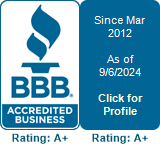When you receive a bill from the IRS or they take your refund it might be tempting to immediately file a claim that you are an Innocent Spouse and not responsible for the tax. However, before you do, you should do some investigation and research.
First, assess the situation. Do you get along with your ex-spouse and can cooperate with tax problems? What exactly is the income, deduction or credit issue that is creating the tax bill? Where are you in the IRS process and what are the allowable options to contest the tax?
The first step is to obtain the tax returns or the tax return transcripts. Then, obtain the wage and income transcripts (here) to determine if income was excluded and the source. For self-employed persons if income was excluded then it is likely that deductions were excluded as well. If you make the effort to reconcile the books and prepare a tax return you may not owe anything at all so Innocent Spouse isn't necessary.
If it turns out a debt is owed, perhaps the liable spouse can pay it to avoid problems. Usually, when the debt can't be paid is when a non-liable spouse complains.
On the flip-side, when the ex-spouses have children they will inevitably fight over the dependency exemptions. You may also want to request the other ex-spouse to complete a Form 8332 so you are assured of the dependency exemptions for children.
The procedure to claim Innocent Spouse starts with filing Form 8857. The IRS will send Letter 3284C to the other party to give him or her a chance to respond with Form 12508. If you have been a victim of domestic abuse, please provide all the police reports, restraining orders, psychologist and medical reports detailing the abuse.
If you claim Innocent Spouse the other spouse may cause problems in Divorce Court and elsewhere. This makes private resolution nearly impossible. In some case the ex-spouse has filed fraudulent documents or forged signatures on returns. This requires more serious investigation and possibly a criminal charge. So, only make the claim if other methods fail.
While your Innocent Spouse claim is being processed, the IRS will typically make a Preliminary Determination with Letter 4986C and if your Innocent Spouse claim is accepted, you will receive Letter 5086C and a Form 870-IS to waive restriction on assessment.
If, however, you receive a notice that your ex-spouse is filing an Innocent Spouse claim do not fail to respond to Letter 3284C (above). When the investigation is over the IRS will send you a Preliminary Determination (Letter 4985C) and eventually send Letter 3323C (final notice).
If you're thinking an Innocent Spouse claim is appropriate, please gather all the documents and come consult with our offices so we can construct a solid Action Plan to win against the IRS!
J. David Hopkins






